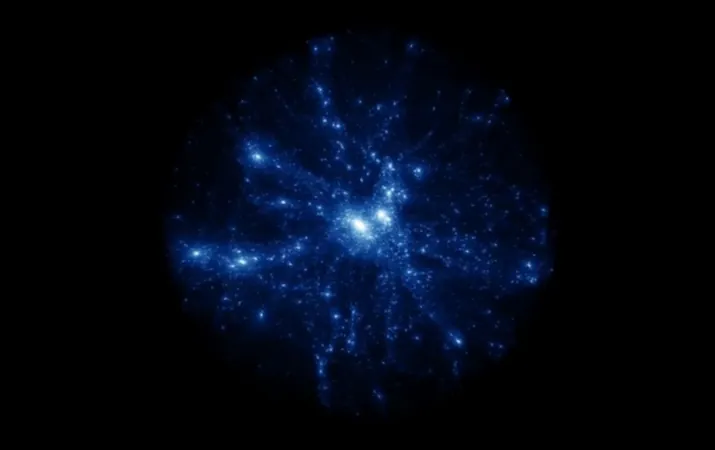
New Insights into Schizophrenia: Altered Contrast Perception May Reveal Neural Pathways
2025-01-28
Author: Nur
Recent Research Findings
Recent research suggests that individuals with schizophrenia experience a significant impairment in their ability to perceive visual contrasts, as highlighted by a comprehensive review conducted by researchers from the University of Barcelona. Schizophrenia, which affects approximately 1% of the global population, presents various symptoms, including delusions, hallucinations, and alterations in cognitive function. This groundbreaking study sheds light on how these symptoms may relate to fundamental visual processing deficits.
The review encompassed over 600 studies, revealing that individuals with schizophrenia display difficulty distinguishing differences in light intensity between adjacent areas of their visual field. This impairment can hinder day-to-day activities such as identifying shapes, recognizing faces, and reading, which are all reliant on effective contrast perception.
The Link Between Contrast Perception and Glutamate Levels
The researchers suggest that the impairment in contrast perception may be linked to altered glutamate levels, a neurotransmitter pivotal to the brain's processing functions. A decrease in glutamate could lead to reduced neural activity in areas that manage visual contrast, resulting in the noted sensitivity deficits. "This relationship proposes that contrast sensitivity testing might serve as a new, non-invasive biomarker for identifying individuals with pronounced deficiencies in this neurotransmitter pathway, potentially enabling tailored approaches in clinical settings, particularly in drug trials targeting glutamatergic signaling," the researchers elaborate.
Exploring Underlying Factors
Despite the significant findings, the study cautions against oversimplification. There are indications that medication may play a role in altering visual perception. The researchers observed a correlation between antipsychotic medication doses and the degree of contrast perception impairment. Moreover, they emphasize the need to explore how attentional factors may influence these results. Previous studies may not have adequately accounted for potential attentional lapses that can exacerbate perceptual deficits, adding another layer of complexity to the understanding of this mental disorder.
The researchers affirm that it is crucial to differentiate between impairments stemming from the schizophrenia itself and those arising from cognitive challenges, such as lapses in attention. They advocate for additional studies that incorporate experimental designs specifically aimed at untangling these cognitive factors to establish firmer links and potential biomarkers associated with psychotic symptoms.
The Road Ahead: Need for Further Exploration
Ultimately, this pioneering study uncovers significant pathways for further research into how visual processing and schizophrenia intersect. By understanding how alterations in contrast perception relate to the neurotransmitter systems affected in schizophrenia, researchers may open new doors for innovative treatment strategies and implement more effective measures for diagnosis and monitoring. The journey towards unraveling the complexities of schizophrenia continues, revealing a need for deeper exploration into the intricate workings of the brain and perception.

 Brasil (PT)
Brasil (PT)
 Canada (EN)
Canada (EN)
 Chile (ES)
Chile (ES)
 Česko (CS)
Česko (CS)
 대한민국 (KO)
대한민국 (KO)
 España (ES)
España (ES)
 France (FR)
France (FR)
 Hong Kong (EN)
Hong Kong (EN)
 Italia (IT)
Italia (IT)
 日本 (JA)
日本 (JA)
 Magyarország (HU)
Magyarország (HU)
 Norge (NO)
Norge (NO)
 Polska (PL)
Polska (PL)
 Schweiz (DE)
Schweiz (DE)
 Singapore (EN)
Singapore (EN)
 Sverige (SV)
Sverige (SV)
 Suomi (FI)
Suomi (FI)
 Türkiye (TR)
Türkiye (TR)